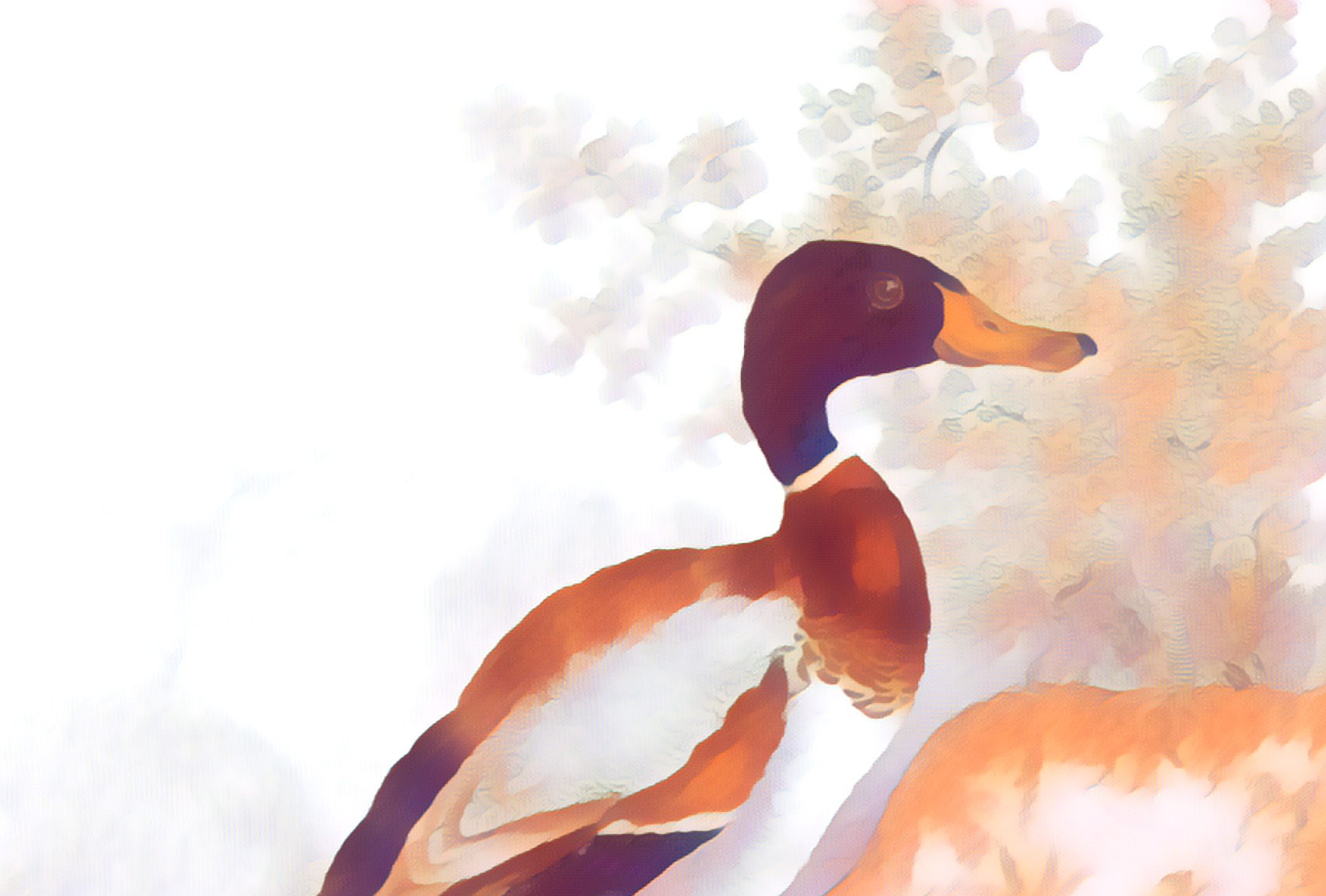 Summer changes attitudes, behaviours and perceptions.
Summer changes attitudes, behaviours and perceptions.
With relaxed timetables, variations in venues and more leisurely approaches regarding daily routines, we can gain new insights into Jesus’ Gospel, our beliefs and even life itself. Let me illustrate.
While relaxing on our patio, I heard a loud splash as ducks landed in our neighbour’s pool; caught a glimpse of baby rabbits nibbling at our freshly grown perennials and watched pesky dandelions threatening to take over our green lawn.
 Firstly, the “ducks landing” flew my thoughts to the Sea of Galilee (Luke 8:22-25). Jesus and his disciples were crossing the lake when a terrific storm threatened to sink their vessel. The frightened disciples found Jesus asleep in the back of the boat. They woke him, pleading for their safety. He commanded the elements to be quiet and it happened.
Firstly, the “ducks landing” flew my thoughts to the Sea of Galilee (Luke 8:22-25). Jesus and his disciples were crossing the lake when a terrific storm threatened to sink their vessel. The frightened disciples found Jesus asleep in the back of the boat. They woke him, pleading for their safety. He commanded the elements to be quiet and it happened.
The disciples wondered about Jesus, since “even the winds and waves” obeyed him.
The “winds and the waves” represent the difficult times in life – the loss of a loved one, challenges by complicated or unpleasant decisions, dramatic changes in personal circumstances, etc.
At such times, Jesus/God is there, even though we may think God is asleep “in the rear of the boat” (our lives). God is still present to guide and support us as we navigate through whatever “waves and winds” we face in life.
The circumstances may not be taken away or altered, but Jesus’ presence and strength can enable us to cope with the situations and then move us into a new life.
Secondly, the “rabbits nibbling” reminded me of our status within nature’s cycle, and how all living creatures are dependent and interdependent upon each other.
Jesus (Matthew 6:24-34) reassured us that God takes care of our basic needs. “Look at the birds (he could have said rabbits): they do not plant seeds, gather harvests and place into barns, yet your Heavenly Father cares for them! Aren’t you worth much more than birds (rabbits)?”
We are worth more than a rabbit or a bird. Jesus loved us so much that he died and rose from the dead to save us from sin, and provided the Holy Spirit to look after us daily and to bring us to eternal life. So why worry about tomorrow? Today has enough worries for itself, and we “do not need to add to the troubles each day brings,” suggested Jesus: sound investment advice during troubling times.
Thirdly, those “pesky dandelions” conjure up Jesus’ story about weeds (Matthew 13:24-30). Apparently a farmer planted good seeds, and then an enemy invaded his fields and sowed weeds (dandelions). The weeds took over. The workers wanted to yank them up, but the wise farmer decided to let them grow together and separate them at harvest time.
The weeds (dandelions) could symbolize those parts of our lives which we wish we could redo or relive differently – taking back cutting words, undoing hurtful behaviours or removing malicious thoughts.
Sometimes, even after making amends and receiving forgiveness, the consequences remain with us.
Maybe, like the farmer, we have to live with our past until our final harvest, when the good we have accomplished can be separated from the other. Then the other will be cast away and the good put in God’s barn (eternal life).
After rereading the above, Nat King Cole’s song Those Lazy, Hazy, Crazy Days of Summer can easily be translated as those “busy, sunny, wise days of summer” enhancing our souls, minds and bodies.
This summer, look around, observe and learn about God and yourself from all your experiences.
Hollis Hiscock welcomes your feedback and reflections.
Summer – a season for new insights
With relaxed timetables, variations in venues and more leisurely approaches regarding daily routines, we can gain new insights into Jesus’ Gospel, our beliefs and even life itself. Let me illustrate.
While relaxing on our patio, I heard a loud splash as ducks landed in our neighbour’s pool; caught a glimpse of baby rabbits nibbling at our freshly grown perennials and watched pesky dandelions threatening to take over our green lawn.
The disciples wondered about Jesus, since “even the winds and waves” obeyed him.
The “winds and the waves” represent the difficult times in life – the loss of a loved one, challenges by complicated or unpleasant decisions, dramatic changes in personal circumstances, etc.
At such times, Jesus/God is there, even though we may think God is asleep “in the rear of the boat” (our lives). God is still present to guide and support us as we navigate through whatever “waves and winds” we face in life.
The circumstances may not be taken away or altered, but Jesus’ presence and strength can enable us to cope with the situations and then move us into a new life.
Secondly, the “rabbits nibbling” reminded me of our status within nature’s cycle, and how all living creatures are dependent and interdependent upon each other.
Jesus (Matthew 6:24-34) reassured us that God takes care of our basic needs. “Look at the birds (he could have said rabbits): they do not plant seeds, gather harvests and place into barns, yet your Heavenly Father cares for them! Aren’t you worth much more than birds (rabbits)?”
We are worth more than a rabbit or a bird. Jesus loved us so much that he died and rose from the dead to save us from sin, and provided the Holy Spirit to look after us daily and to bring us to eternal life. So why worry about tomorrow? Today has enough worries for itself, and we “do not need to add to the troubles each day brings,” suggested Jesus: sound investment advice during troubling times.
Thirdly, those “pesky dandelions” conjure up Jesus’ story about weeds (Matthew 13:24-30). Apparently a farmer planted good seeds, and then an enemy invaded his fields and sowed weeds (dandelions). The weeds took over. The workers wanted to yank them up, but the wise farmer decided to let them grow together and separate them at harvest time.
The weeds (dandelions) could symbolize those parts of our lives which we wish we could redo or relive differently – taking back cutting words, undoing hurtful behaviours or removing malicious thoughts.
Sometimes, even after making amends and receiving forgiveness, the consequences remain with us.
Maybe, like the farmer, we have to live with our past until our final harvest, when the good we have accomplished can be separated from the other. Then the other will be cast away and the good put in God’s barn (eternal life).
After rereading the above, Nat King Cole’s song Those Lazy, Hazy, Crazy Days of Summer can easily be translated as those “busy, sunny, wise days of summer” enhancing our souls, minds and bodies.
This summer, look around, observe and learn about God and yourself from all your experiences.
Hollis Hiscock welcomes your feedback and reflections.
Keep on reading
Resurrection of Hope in Thundering Waters
Of Pancakes and Ashes
Into the Desert with Christ: Why Lent Still Matters in a Frantic and Fractured World
YLTP Registration Now Open Calling All Young Leaders of Niagara!
Every Day is Christmas: Finding Grace in the Midst of War
The Grandparents Club: A New Faith Formation Resource for Churches